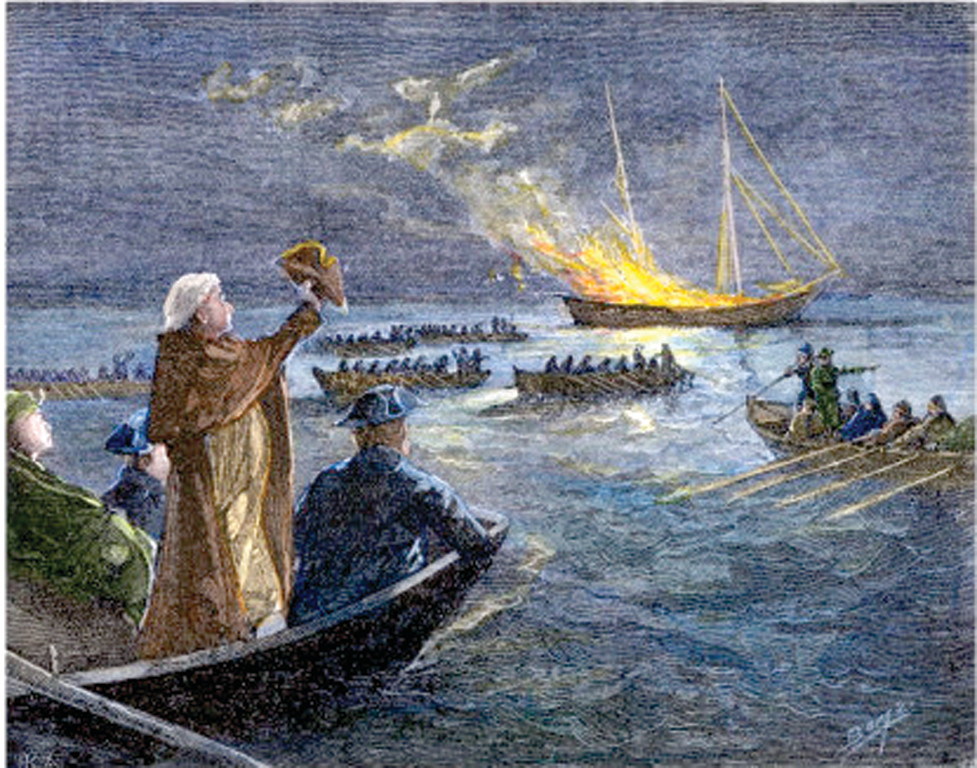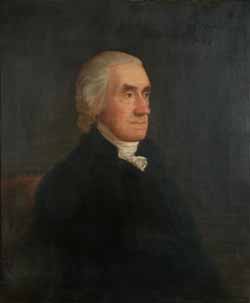“I have pleased myself with the thought of serving under you”
In his biography of his grandfather, George Washington Greene wrote:
There is a tradition, but I will not vouch for it, that the first choice fell upon an Episcopalian, who declined; the second, on a Congregationalist, who also declined; and that, when the third vote was announced as having fallen on Greene, he rose in his place, and said: “Since the Episcopalian and Congregationalist won’t, I suppose the Quaker must.”That’s about as tepid an endorsement for a “tradition” as a nineteenth-century biographer could provide. And the religious terms “Episcopalian” and “Congregationalist” weren’t standard in 1775, suggesting it wasn’t exact.
One recent biographer of Nathanael Greene has suggested that those first two candidates for command declined on religious grounds. I think that’s a misreading of the tradition. The first two faiths mentioned weren’t pacifist. That was the point of the anecdote—the irony of a (lapsed) Quaker leading an army instead of men from sects that didn’t object to military action. And the story might have some validity, though I doubt it happened in a legislative session.
The legislature’s first choice probably was Simeon Potter, already major general of the colony militia. At least, the body couldn’t ignore him. And Potter was an Anglican, even if he’d punched his minister in the face back in 1761. (Incidentally, the Rev. John Usher died on 30 Apr 1775, just as these discussions about the Rhode Island army were under way.)
Another candidate for command whom G. W. Greene and later biographers mentioned is James Mitchell Varnum (shown here), captain of the Kentish Guards. He’d grown up in Dracut, Massachusetts, as what people would later term a Congregationalist. That said, there were many others of that faith in Rhode Island as well, some probably quite senior to the twenty-six-year-old Varnum.
Varnum and Greene had worked together in the fall of 1774 to form the Guards, an independent militia company based in East Greenwich. Varnum, a rising young attorney, was chosen as the first captain. Encouraged by a cousin, Greene put his name forward to be a lieutenant, only to learn that some members thought his limp meant he didn’t look good marching in an elite company at all.
Sometime in October, it appears, Greene wrote to Varnum:
If I conceive right of the force of the objection of the gentlemen of the town, it was not as an officer, but as a soldier for that my halting was a blemish to the rest. I confess it is my misfortune to limp a little, but I did not conceive it to be so great; but we are not apt to discover our own defects. . . .Apparently Varnum had spoken of leaving the company himself if Greene was forced out because the letter continued:
I have pleased myself with the thought of serving under you, but as it is the general opinion that I am unfit for such an undertaking, I shall desist. I feel not the less inclination to promote the good of the company, because I am not to be one of its members. I will do anything that's in my power to procure the charter.
Let me entreat you, Sir, if you have any regard for me, not to forsake the company at this critical season for I fear the consequences—if you mean to oblige me by it, I assure you it will not, I would not have the company break and disband for fifty DollarsVarnum stayed with the company and apparently convinced Greene to do the same.
On 29 October, the legislature, with Greene as a delegate, issued a charter for the Kentish Guards. Its act listed the dozens of men who had petitioned for that charter, starting with Varnum and the other three designated as officers, including Christopher Greene. The fifth name on that list was Nathanael Greene. So officially he was a leading member.
It’s conceivable that some fallout from that affair influenced the choice of Greene as general in May 1775. If the legislature did approach Varnum, he may have thought it was Greene’s turn to lead. Or perhaps, with a real war looming, organizational skills seemed a lot more important than a slight limp.
TOMORROW: Hidden factors in the decision.





